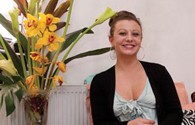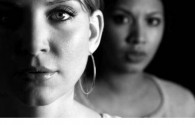Frequently asked questions
Why does this campaign focus on women?
St Mungo’s Broadway has known for a long time that men and women respond differently to the threat of homelessness, and differently too when it becomes a reality. It has struck us as questionable, therefore, that we seem to treat them the same when it comes to offering them support, and helping them on the path to recovery. Whether it be from the perspective of health, work or family, homeless women have specific needs which we as a sector do not seem particularly good at meeting. Furthermore, research shows that homeless women have both more complex and more severe needs than homeless men. Together, this leads to a disproportionate financial burden on all Government departments as well as frontline agencies. Generations of people are being caught in this cycle; consistently relying on statutory services, parked in the criminal justice system and putting even more pressure on the NHS and the welfare system.
What is the scale of the problem?
Homelessness, including female homelessness, is on the rise. Government figures released in Spring 2012 show a 23 per cent increase in rough sleepers and a 14 per cent increase in households accepted as homeless. Despite this, there has also been a reduction in the national supply of all types of supported accommodation. Although many women successfully recover from homelessness in services that engage with both men and women, in many cases women-specific services may be more appropriate. Yet between 2011 and 2012 there was a 40 per cent drop in the proportion of homelessness services specifically targeted at women, and by 2013 it made up just eight per cent of the provision. As the number of homeless women increases and services are cut, it is vital that we raise awareness of the issues, share existing good practice and drive innovation.
Currently, twelve per cent of rough sleepers in London are women and over half of those living in temporary accommodation are women. In addition, many homeless women are ‘hidden’ – trapped in abusive relationships, living in crack-houses or squats, or sofa-surfing with friends and family. Women currently make up a quarter* of St Mungo’s Broadway clients. We know that women can become homeless for a number of different reasons, such as relationship breakdown, bereavement and as a result of a range of traumatic experiences such as domestic violence, time spent in custody, or having their children taken into care. We also know that our female clients arrive at our services with a wide range of significant and complex needs, for example*:
- 70 per cent have a mental health problem
- 48 per cent have a substance misuse problem, either drugs and/or alcohol
- More than one in ten have a history of being in care
- Over one third of those who have slept rough have been involved in prostitution.
We also know that almost half* of St Mungo’s Broadway’s female clients are mothers. Despite these needs, women are not always well served by existing homelessness provision as much of this has traditionally been designed for men. We want to see this change. Within St Mungo’s Broadway we have been doing some work to improve our responsiveness and relevance. We wanted to harness the insights and experience of others, from a range of sectors, in order to build up a body of good practice about what really works for women who become, or are at risk of becoming, homeless. We wanted to learn from each other – and, crucially, from women who have direct experience of homelessness. The Rebuilding Shattered Lives report brings together all of this learning into some key points and recommendations.
*(statistics taken prior to St Mungo’s and Broadway merging in April 2014 to become St Mungo’s Broadway)
Who is this website aimed at?
The information and report from this campaign is open to individuals, statutory and voluntary organisations from across the UK – anyone working with, or interested in homeless or vulnerable women.
Who's participated in the campaign?
We were delighted that many people with a wide range of expertise and knowledge contributed to the campaign. Here are just some of the organisations what members came from: Action for Children; AVA; Brighter Futures; Catch 22; DrugScope; East London Housing Partnership; Homeless Link; Jewish Women’s Aid; Lambeth Council; Launchpad Reading; Marylebone Project; MEAM; Platform 51; Revolving Doors; St Mungo’s: Standing Together; The Cyrenians; The Passage; Tomorrow’s People; Tower Hamlets Council and UCL Hospital.
How can I support St Mungo's?
There are many ways you can support St Mungo’s Broadway. You can, sign up to be an e-campaigner, read the report, read what others have submitted, and help us spread the word on Twitter using #RebuildingLives If you are in a position to support this St Mungo’s Broadway campaign by making a donation, please complete our online donation form.




